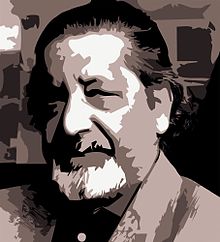Our website is made possible by displaying online advertisements to our visitors.
Please consider supporting us by disabling your ad blocker.
2001 Nobel Prize in Literature
| Vidiadhar Surajprasad Naipaul | |
 "for having united perceptive narrative and incorruptible scrutiny in works that compel us to see the presence of suppressed histories." | |
| Date |
|
| Location | Stockholm, Sweden |
| Presented by | Swedish Academy |
| First award | 1901 |
| Website | Official website |
The 2001 Nobel Prize in Literature was awarded to the Trinidadian-born British writer Vidiadhar Surajprasad Naipaul (1932–2018), commonly known as V. S. Naipaul, "for having united perceptive narrative and incorruptible scrutiny in works that compel us to see the presence of suppressed histories."[1][2] The Committee added: "Naipaul is a modern philosopher carrying on the tradition that started originally with Lettres persanes and Candide. In a vigilant style, which has been deservedly admired, he transforms rage into precision and allows events to speak with their own inherent irony."[3] The Committee also noted Naipaul's affinity with the novelist Joseph Conrad:
Naipaul is Conrad's heir as the annalist of the destinies of empires in the moral sense: what they do to human beings. His authority as a narrator is grounded in the memory of what others have forgotten, the history of the vanquished.[3]
- ^ The Nobel Prize in Literature 2001 nobelprize.org
- ^ "V.S. Naipaul Awarded 2001 Nobel Prize in Literature". New York Times. 11 October 2001. Retrieved 21 May 2021.
- ^ a b "The Nobel Prize in Literature 2001: V. S. Naipaul (Press Release)". Svenska Akademien. 11 October 2001. Archived from the original on 20 October 2012.
Previous Page Next Page


